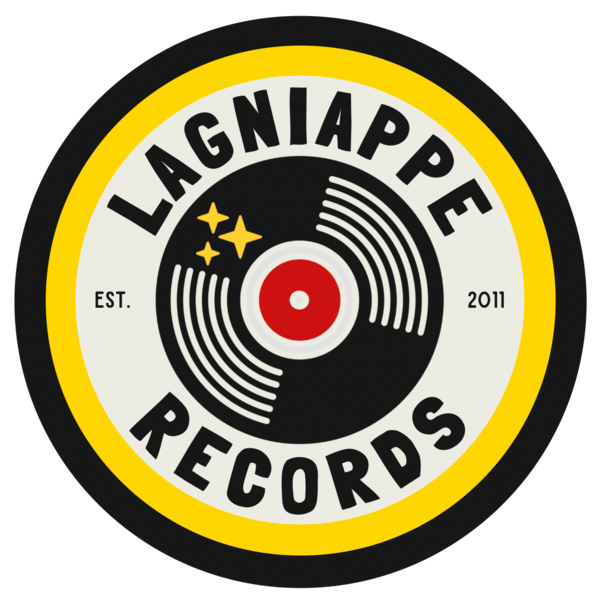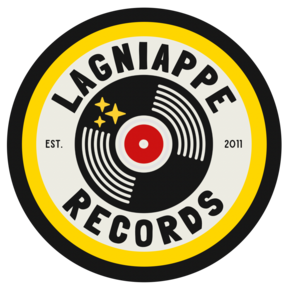LAGNIAPPE RECORDS
311-B Jefferson St. Lafayette, LA 70501
STORE HOURS
OPEN: Wednesday thru Saturday
12 p.m. - 6 p.m.
NOPE: Sunday, Monday & Tuesday

OPEN:
Weds. Thurs. Fri. Sat.
12pm to 6pm
CLOSED:
Sunday - Monday - Tuesday
Open to order online 24-7
select shipping
or
local pick-up!
After 1970's "Old Socks, New Shoes...New Socks, Old Shoes" landed them a spot on the charts briefly for the single "Hard Times" the Crusaders decided on an entirely new approach by making a very small change: they dropped the word "Jazz" from their moniker for 1971's Pass the Plate, the group's final offering on Chisa. Pass the Plate is notable for many things. For starters, a member of the band wrote every composition on it and yet it's a thoroughly modern recording. It begins with trombonist Wayne Henderson's 15- plus-minute title suite that contains no less than five separate parts (the Crusaders were no strangers to the pop music of the era; here they did their own nearly side-long take on what the Beatles accomplished on side two of Abbey Road). The original quartet of Henderson, pianist Joe Sample, saxophonist Wilton Felder, and drummer Stix Hooper are assisted on guitar -- and one assumes on bass since this instrument is uncredited -- by soul and blues legend Arthur Adams. It is a seamless track that allows for the individual abilities of all of its members to shine through as improvisers and displays Henderson's impeccable sense of time, seamlessly melding genres such as gospel, blues, and vintage and latter day soul into jazz. In addition to Adams, there are also uncredited female and male choruses edited into the proceedings at two points (they're in the background and they don't distract) and Philemon Hou, from the Friends of Distinction, adds some "tapping" and "begging" to the mix, bringing it the feel of some good-time street theater. The first side closes with a reprise of the group's first hit of a decade earlier, "Young Rabbits (71-72)," with a brief but tough drum break by Hooper. The second half of the album is almost all Sample. It begins with "Listen and You'll See," one of the pianist's now trademark sleight-of-hand compositions where theme, interlude, bridge, and improvisation all feel like separate tunes until the theme returns at the end. His own Fender Rhodes breaks twinned with Adams' guitar are lean, choppy, and tough while the horn parts are elegant and graceful. Hooper's "Greasy Spoon" is next; it's a tune that would become an enduring part of the group's live show. With its shuffling bluesy frontline -- the horns and guitar -- it's all groove and sounds like its title: all meat and potatoes. "Treat Me Like Ya Treat Yaself," -- Sample's good-natured dig at Sly Stone and Les McCann, follows, but that's in title only. These cats could lay down some of the most sophisticated grooved out funk of the era. Adams plays full wah-wah on both rhythm and his leads, and the horns inside and out with a James Brown-style moves as Sample does his pump-it-up move with simple but effective key changes in the melody, which give way immediately to a wickedly raspy solo by Felder. The funk continues on "Goin' Down South," which feels more like one of Johnny Pate's blaxploitation soundtrack cues than a typical Crusaders tune of the time, but that's a compliment. The album closes on a slow note with the midtempo ballad "Love Can't Grow Where the Rain Won't Fall," a gospel-sounding tuner with direct nods to the Burt Bacharach-Hal David fakebook. Ultimately, like its predecessor, this is arguably the Crusaders at their finest and most accessible to rock and pop audiences of the time, though they didn't give up an inch of the jazz cred they'd established over the previous decade.
STORE HOURS
OPEN: Wednesday thru Saturday
12 p.m. - 6 p.m.
NOPE: Sunday, Monday & Tuesday

Vinyl, Tapes, & Shit
*SEALED* Jacket still sealed in shrink original wrap; disc sold ungraded or "as is."
NM (Near Mint) Appears unplayed and will bear no marks, sleeve scuffs, or scratches.
EX+ (Excellent) May have one or two visible imperfections (i.e. sleeve scuffs, faint scratches, or other superficial marks) that will not affect playback.
VG+ (Very Good+) A few visible imperfections. These may include sleeve scuffs, light scratches, or other superficial marks.
VG (Very Good) Similar imperfections found on VG+ records but in slightly greater numbers. Records graded VG and above will typically not have any scratches that are deep enough to be felt with a fingernail.
VG- (Very Good-) A number of visible imperfections; the presence of a considerable number of light scratches will force a VG- grade, as will the presence of significant isolated defects such as scratches deep enough to be felt with a fingernail.
G (Good) Record can be played without skipping, but will have significant surface noise, scratches, and visible groove wear. G+ and G- are used to indicate stronger and weaker copies within this range.
*SW/DNAP* Slight warp, does not affect playback
*QUAD* Quadraphonic Sound, similar to today’s surround sound
All records are visually graded by our experienced staff, using a bright lamp and an Audio-Technica ATLP-120 turntable.